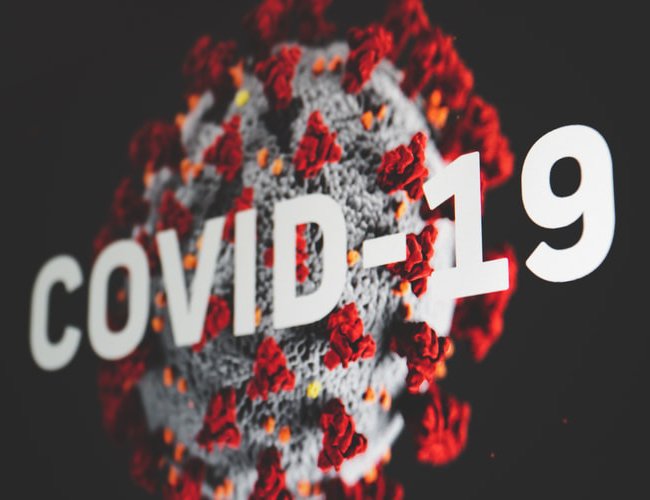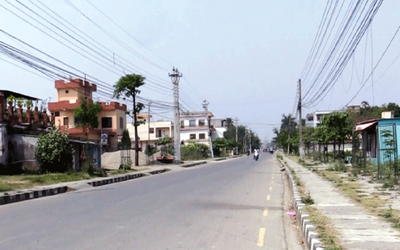
Life is unpredictable, so is the world. World’s priorities have been changed and Human being’s world views towards life is also changing as the Coronavirus disease (COVID-19), which was first discovered in Wuhan, China in the month of December 2019, puts an entire world under unprecedented threats. At the top of the list is the limitation of human knowledge in saving lives. The global upheaval caused by the spread of the virus has brought many unexpected incidents to the limelight. Powerful nations such as the United States of America and European Union countries having their hardest time to get sufficient medical equipments, ensure market operation, and eventually to save people from dying of the virus. As the virus spreads over 213 countries, areas or territories, World Health Organization has confirmed 99,887 deaths and 1,614,951 cases with coronavirus positive as of 12 April 2020 (who.sprinklr.com). This article discusses some key issues revolving around national and international efforts on international cooperation and foreign aid to combat coronavirus disease.
Politicization of Coronavirus
Harmonizing cooperation between and among the states is very important now. Despite efforts from international organizations, political interest of the powerful countries might jeopardize international cooperation. Recently Director General of World Health Organizations (WHO) asked not to politicize the virus and pleaded to the world leaders to ‘quarantine politicizing COVID’. Though he did not spell out who was politicizing COVID, his remarks were hinting at the US president Donald Trump’s statements and his criticisms against WHO for being China-centric. In response to the US’s accusation of hiding COVID information and taking slow measures, Chinese authorities in March stood harsh against the US. A spokesman for China’s Foreign Ministry suggested that the U.S. military might have brought the coronavirus to the city of Wuhan, irking the US. Since then the US, more particularly, the President Trump insisted to name the disease as “Chinese virus.” According to international media, the joint statement of the G-20 video conference was obstructed as American delegates wanted to name it ‘Wuhan virus’, which the others opposed.
Despite different political ideologies and differences in several issues, both China and America should unite this time. According to international media,President Trump has recently announced plans to put a hold on U.S. funding for the World Health Organization, accusing it of being ‘very China centric’ and criticizing its early guidance aimed at countering the international spread of the coronavirus. At this critical moment, if US, a major funder for WHO, takes such step, it would hamper international cooperation which should not happen. Irrespective of where the virus was discovered or originated, China and the US should stand together to combat the virus. The commitment of President Trump to ‘work together with China’, which he tweeted on 27 March, is something the world wants them to act.
Shifting Trend in Aid
Coronavirus outbreak has challenged traditional donor-recipient relations model. There will long term impact of COVID-19 pandemic as the new projections on economic growth are coming in. The Organization for Economic Co-operation and Development (OECD) has downgraded its 2020 GDP growth projection in view of negative impacts caused by the global outbreak of coronavirus. According to the new projection, the global economy is expected to grow by 2.4% in 2020 down from the 2.9% projected earlier, according to the OECD. International Monitory and Financial Institutions will make certain interventions to cope with the long-term economic crisis. However, for now, some new trends have been set in the area of international cooperation. Cuba, sending doctors to Italy as medical diplomacy, China, offering assistance for medical supplies and protective equipment and supporting USD 20 million to the WHO, the UK retaining the foreign migrant doctors to fight the virus are some examples that give a new indication in foreign aid’s domain. According to China's Ministry of Foreign Affairs, China has announced assistance to 82 countries, as well as the World Health Organisation (WHO) and the African Union that also indicates the importance of global south in development cooperation. Knowledge sharing between the countries is another important aspect in development cooperation that helps face global challenges in the emergencies collectively. For this the states should allow good practices to flow around the world.
International Aid in COVID-19 Response in Nepal
The first case of Covid-19 in Nepal was confirmed in a man returning from Wuhan on 23rd January 2020. Since then, a total of nine cases have been confirmed for coronavirus positive (https://covid19.mohp.gov.np). The government has designated 25 hospitals across the country for the treatment of the disease whereas specimen tests are available in 10 hospitals. Ministry of Health and Populations has taken a lead to respond the pandemic. International Financial Institutions, Multilateral and bilateral agencies and International Non-government organizations (INGOs) have been lending helping hands to the government of Nepal.
The World Bank, for example, has approved a fast-track $29 million COVID-19 Emergency Response and Health Systems Preparedness Project to help Nepal prevent, detect, and respond to the COVID-19 pandemic and strengthen its public health preparedness. Similarly, EU is co-financing UNDP, UNICEF, Civil Society Organizations and the Government of Nepal’s public information campaign on COVID-19 and dissemination of materials are quite optimistic enterprises. By the same token, the United States Government has also made a commitment of an additional USD 1.8 million to Nepal to combat Novel Coronavirus Pandemic.
Despite unclear mandates from the government of Nepal in the initial phases, INGOs working in Nepal have also intensified COVID-19 response by several ways such as diverting the fund, through the regular project, raising additional fund or mobilizing emergency fund. Social Welfare Council (SWC) has officially allowed INGOs to deviate or adjust twenty percent of approved budget mentioned in the existing project agreements for COVID-19 response. The SWC has also requested INGOs to raise fund to support the government in COVID-19 response, which is an indication of intact working relationship between the government and non-government organizations.
Based on the understanding with the funding agencies and in cooperation with the government authorities, INGOs have been supporting at federal, provincial and local level. They have been supporting in equipment, health and sanitation, raising awareness and food and relief material supply among other. However, consolidated data on the total worth of supports have not been made public by the concerned authorities as the supports have been channelled in several forms and through multiple layers and mechanisms of the government.
At this unfavourable situation, for the optimization of the the foreign aid in Nepal, some conditions are crucial in COVID-19 response. First, regardless of its forms, aid should be targeted to address the most vulnerable people where donor’s flexibility to align the government’s priority is critical. Second, local governments need to strengthen capacity to accurately maintain the disintegrated data to identify needs during emergencies. And, third, government institution itself should ensure robust mechanisms to operationalize the supports and sustain them. Ultimately, accountability to ensure governance in aid delivery and its intended usage is crucial to optimize foreign aid in COVID-19 response in Nepal.
















